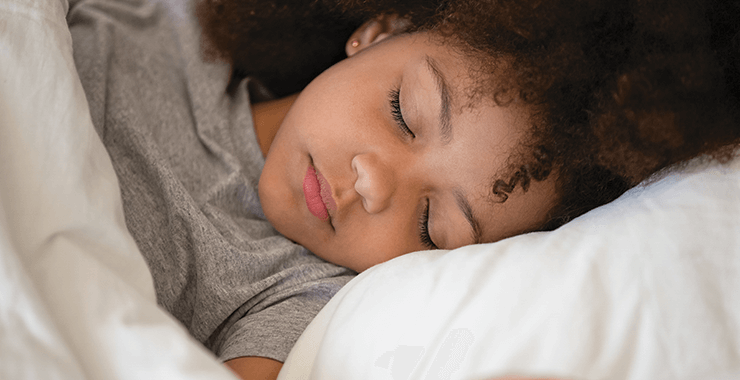Young as they are, children may develop sleep apnea.
Sleep apnea is a disorder in which breathing stops and starts at repeated and irregular intervals. They can come in three varieties:
- Obstructive sleep apnea
- Central sleep apnea
- Complex sleep apnea syndrome
As high as 1 in 2 children according to the American Academy of Pediatrics have a sleep problem. Some of this can be caused by larger issue such as sleep apnea. Sleep apnea can still take a toll on your child’s sleeping patterns and oral health if left unattended.
It’s important that you detect sleep apnea earlier. For this, you will need to watch out for a few signs and symptoms:
Symptoms of Sleep Apnea in Children
Swollen Adenoids and Tonsils
Swollen tonsils and adenoids are the first and most common symptoms of sleep apnea that can occur in children.
These glands at the back of the throat can become enlarged. As a result, they can restrict the airways and make it harder for children to breathe while they sleep.
It may be important to speak to a pediatrician if your child experiences swollen adenoids and tonsils frequently. A tonsillectomy would be the best course of action to consider.
Lack of attention during the daytime
Poor sleep quality can lead to attention span issues and a lack of focus during the daytime.
Children with sleep apnea may have difficulties concentrating in class due to a lack of a good night’s rest. Detecting this condition early on can support your child’s performance at school.
Restlessness
Children will obviously have restlessness and a lack of proper sleep as a result of sleep apnea.
In some cases, sleepwalking, wetting their beds, or night terrors can also occur.
Even worse, your child may develop insomnia in the long run. It can also affect oral hygiene. Lack of sleep may increase the possibility of developing mouth ulcers, gum diseases, and bad breath.
Unusual breathing while sleeping
If your child breathes through their mouth or experiences choking or coughing while asleep, then you have a serious problem to deal with.
It could be that your child has swollen adenoids or tonsils, but unusual breathing patterns can also result from being overweight.
What happens if sleep apnea remains untreated
If your child is experiencing any of the symptoms above, immediate diagnosis and treatment are crucial before the condition worsens.
Over time, sleep apnea in children is also a manifestation of more serious medical conditions such as heart disease or endocrinopathies.
This will also hinder the delivery of dental services. According to the American Academy of Pediatric Dentistry (AAPD) Policy on Obstructive Sleep Apnea, children with sleep apnea are likely to experience breathing complications. These may occur during or after any procedure that requires sedation.
The role of pediatric dentists in addressing sleep apnea
While they may treat sleep apnea directly, pediatric dentists can still play a crucial role in treating the disease.
One study calls pediatric dentists gatekeepers in detecting the presence of obstructive sleep apnea. Routine dental examinations and patient screening can help with identifying risk factors in children.
The Thrive Clinic, an internal subgroup of Children’s Choice, offers specialized laser treatments for lip and tongue ties in children, which, if left untreated, can cause not only sleep apnea but also problems with breathing, speaking, feeding and even breastfeeding. The team, which includes an on-site oral myofunctional therapist, is working to properly diagnose the child, so they can pinpoint and fix the problem right away. Children who come to Children’s Choice for help will receive the treatment and resources they need to sleep peacefully and live better, healthier lives.
From there, dentists can notify parents about the problem and refer them to a pediatric physician or general practitioner for a formal diagnosis.
At Children’s Choice, our services provide for a holistic approach to your child’s dental and overall health. We nurture a network of ENT and pediatric health specialists who can prevent further complications.

